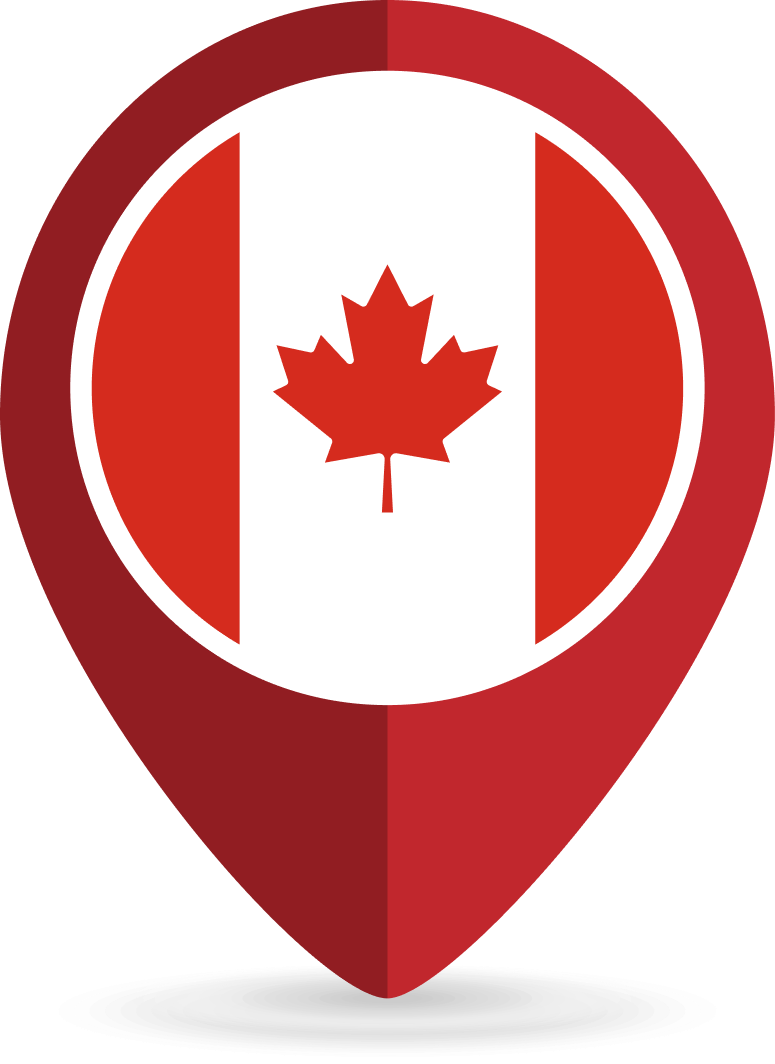From Visa to Degree: A Step-by-Step Guide to Studying in Canada
Due to its world-class education system, diverse culture, and breathtaking landscapes, studying in Canada is the dream of many. To help you secure a visa and eventually find your place in the ranks of international students in this fascinating country, here is a comprehensive guide on the entire process of studying in Canada.
If you are a student from India, this guide is tailored to address your specific concerns, including tips on overcoming common challenges faced by Indian students, such as visa processing and financial planning.
Why Study in Canada?
Canada presents many benefits to international students, hence one of the leading destinations for higher education. Here’s why you should study at Canada:
- Top universities in Canada: Among these are the University of Toronto, McGill University, and the University of British Columbia that highly feature in all of the global rankings for universities.
- Diverse programs: Be it technology, business, art, or medicine, there are all kinds of courses Canada has to offer.
- Post-graduation opportunities: Most international students who complete their studies usually find many work and immigration opportunities for themselves.
For Indian students, studying in Canada opens doors to globally recognized degrees and a multicultural environment that feels welcoming and familiar.
Step 1: Choose Your University and Program
The first step is choosing the right institution. Start with the best universities in Canada, and sort through their programs to find one that suits your interest in developing a career. Check its duration of study, tuition fees, and facilities available on campus.
Tip: Research admission requirements for international students on individual university websites.
Tip for Indian students: Look for universities offering scholarships or financial aid specifically for Indian students.
Step 2: Apply for Admission
Once you have chosen a program, start your application process. Here is a checklist for you:
Academic Transcripts and Certificates
Language Proficiency (IELTS or TOEFL scores)
Statement of Purpose (SOP) and Letters of Recommendation (LORs)
Resume (if required)
Pro Tip: Apply well in advance to allow sufficient time to meet deadlines. And apply well before scholarships and financial aid cut-off dates.
Step 3: Obtain an International Student Visa Canada
To study in Canada, an individual would require a valid International student visa Canada, known also as the Study Permit. Apply through these steps:
- Letter of Acceptance: Obtain an acceptance letter from any Designated Learning Institution in Canada
- Prepare your documents:
- Paperwork
- Valid passport
- LOA
- Proof of sufficient funds to pay for tuition, as well as living expenses, plus any return travel
- Passport photographs
- Any required medical examination certificate
- Apply online: Make an online application through the official IRCC portal.
- Biometrics and interview: Undergo biometric verification, and some applicants might be requested to appear for an interview.
For Indian students: Processing times for an international student visa Canada can vary. Apply as soon as possible to avoid delays during peak application periods.
Step 4: Arrange for Accommodation and Travel
After securing your visa, it’s time to plan your move:
- Accommodation options: Choose from on-campus housing, private rentals, or homestays.
- Book your flight: Opt for flexible tickets to accommodate potential changes.
- Stay connected: Purchase a prepaid SIM card Canada for hassle-free communication during your initial days. Popular providers include Bell, Rogers, and TELUS.
Pro Tip for Indian students: Consider staying in areas with a vibrant Indian community to ease your transition.
Step 5: Arrive and Settle in Canada
Once you arrive, you will need to fulfil a few formalities:
- Obtain your Study Permit: At the port of entry, produce your visa and LOA for your Study Permit to be issued.
- Open a bank account: Select a student-friendly banking plan.
- Health insurance: Ensure you have good medical coverage according to the provinces.
- Choose the best SIM card in Canada: Compare plans to select a provider offering strong network coverage and cost-effective plans for students.
Tip for Indian students: Carry essentials like winter clothing and some familiar Indian snacks to make your first days more comfortable.
Study, Explore, and Thrive
Learning in Canada is not just book-worming. Be part of the cultural activities, student club, and mingling with peers while on campus during your study term.
Tip: Seek employment for a Study Permit to gain valuable experience and offset living costs.
Post-Graduation Pathways
Canada has different options for international students to stay and work following graduation. The Post-Graduation Work Permit allows a graduate to work in Canada for a period of up to three years, thereby leading the way to permanent residency.
For Indian students, this is a significant advantage, offering a chance to build a career and settle in one of the most immigrant-friendly countries in the world.
Related Posts



















